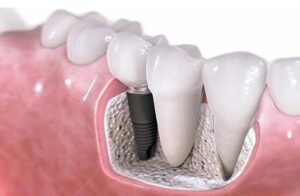Advantages Of Teeth Whitening Before And After
Teeth whitening has gained popularity not only for its cosmetic benefits but also for its potential as an alternative to traditional root canal treatment. Here are some advantages of opting for teeth whitening before and after procedures:
- Non-Invasive Approach: Alternative to Root Canals Treatment, which involves drilling into the tooth to remove infected pulp, teeth whitening is a non-invasive procedure. It works by bleaching the teeth to remove stains and discoloration, without altering the structure of the tooth.
- Improved Aesthetics: One of the primary reasons people choose teeth whitening is to enhance the appearance of their smile. By brightening the teeth, individuals can achieve a whiter, more youthful-looking smile, which can boost confidence and self-esteem.
- Minimal Discomfort: Root canal treatment can be associated with discomfort during and after the procedure, as it involves removing infected tissue from within the tooth. In contrast, teeth whitening typically causes minimal discomfort, with most patients experiencing only mild sensitivity that resolves quickly.
- Quick and Convenient: Teeth whitening procedures are often quick and convenient, requiring just one or a few sessions to achieve noticeable results. This makes it an appealing option for individuals seeking a fast solution to improve the appearance of their teeth.
- Cost-Effective: In comparison to root canal treatment, which can be costly, teeth whitening procedures are generally more affordable. This makes it a viable option for individuals looking to enhance their smile without breaking the bank.
Effectiveness Of Teeth Whitening Before And After
While teeth whitening offers several advantages as an alternative to root canal treatment, it’s essential to consider its effectiveness in addressing dental issues. Here’s what you need to know:
- Stain Removal: Teeth whitening is highly effective at removing surface stains caused by factors such as coffee, tea, tobacco, and aging. However, it may not effectively address deeper stains or discoloration caused by factors such as trauma or medication.
- Limited to External Issues: Teeth whitening primarily targets external discoloration on the enamel surface. It does not address internal dental problems such as infection or decay, which are typically treated with root canal therapy.
- Temporary Results: The results of teeth whitening are not permanent and may fade over time, especially with exposure to staining substances. Therefore, individuals may need periodic touch-up treatments to maintain the desired level of whiteness.
- Not Suitable for All Cases: Teeth whitening may not be suitable for individuals with certain dental conditions, such as severe tooth decay, gum disease, or intrinsic staining. In such cases, root canal treatment or other dental procedures may be necessary to address underlying issues.
- Complementary Treatment: In some cases, teeth whitening before or after root canal treatment can be used as a complementary procedure to enhance the overall aesthetics of the smile. However, it’s essential to consult with a dental professional to determine the most appropriate treatment plan based on individual needs.
Considerations Before Choosing Teeth Whitening
Before opting for teeth whitening as an alternative to root canal treatment, it’s crucial to consider the following factors:
- Dental Evaluation: A comprehensive dental evaluation by a qualified dentist is essential to assess the underlying health of the teeth and gums. This will help determine whether teeth whitening is a suitable option or if root canal treatment or other interventions are necessary.
- Treatment Goals: Clarifying your treatment goals with your dentist is essential to ensure realistic expectations and desired outcomes. Discussing factors such as the level of whitening desired, treatment duration, and potential risks will help tailor the treatment plan to your specific needs.
- Professional vs. Over-the-Counter Options: While over-the-counter teeth whitening products are widely available, they may not be as effective or safe as professional whitening treatments administered by a dental professional. Professional teeth whitening procedures offer customized treatment plans and higher concentrations of bleaching agents for superior results.
- Maintenance and Oral Hygiene: Maintaining good oral hygiene habits and avoiding habits that contribute to staining, such as smoking and consuming staining foods and beverages, is essential for prolonging the results of teeth whitening. Additionally, regular dental cleanings and check-ups can help prevent staining and maintain oral health.
- Potential Risks and Side Effects: Like any dental procedure, teeth whitening carries potential risks and side effects, such as tooth sensitivity, gum irritation, and temporary whitening of the gums or lips. It’s essential to discuss these risks with your dentist and follow their recommendations for minimizing discomfort and achieving optimal results.
In conclusion, while teeth whitening before and after procedures present compelling advantages as an alternative to root canal treatment, it’s crucial to approach this decision with careful consideration. While teeth whitening offers benefits such as non-invasiveness, improved aesthetics, and cost-effectiveness, it’s essential to recognize its limitations in addressing underlying dental issues and its temporary nature.
Before opting for teeth whitening, individuals should undergo a thorough dental evaluation to assess their oral health and determine the most suitable treatment plan. Additionally, discussing treatment goals, potential risks, and maintenance requirements with a qualified dentist is vital for achieving optimal results and ensuring long-term oral health.
While teeth whitening can enhance the appearance of the smile and boost confidence, it may not be suitable for everyone, particularly those with underlying dental conditions or intrinsic staining. In such cases, root canal treatment or other dental interventions may be necessary to address the root cause of the issue.
Ultimately, the decision to choose teeth whitening before and after procedures as an alternative to root canal treatment should be made in consultation with a dental professional who can provide personalized guidance based on individual needs and goals. By considering all factors carefully and weighing the pros and cons, individuals can make informed decisions to achieve a healthy, radiant smile.
